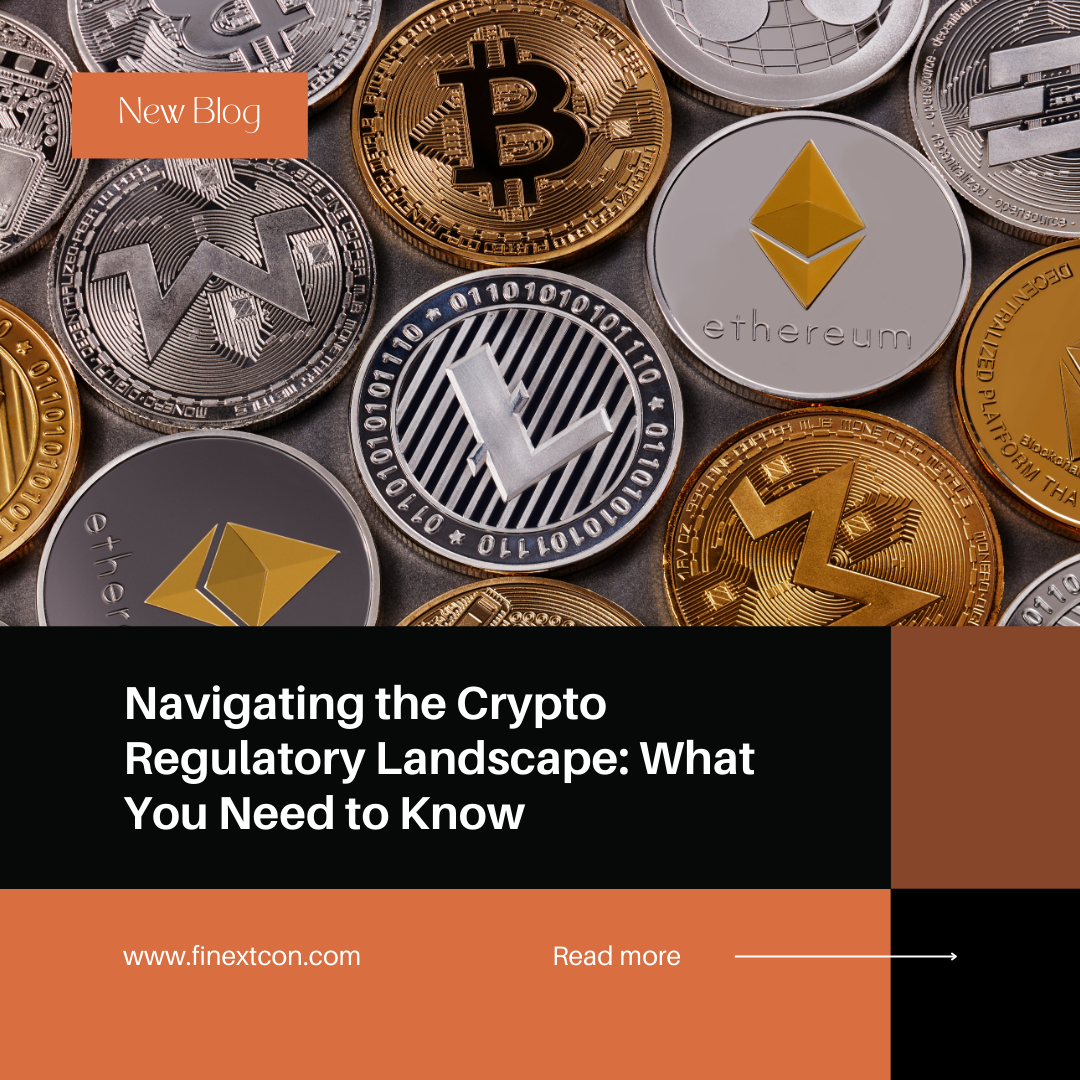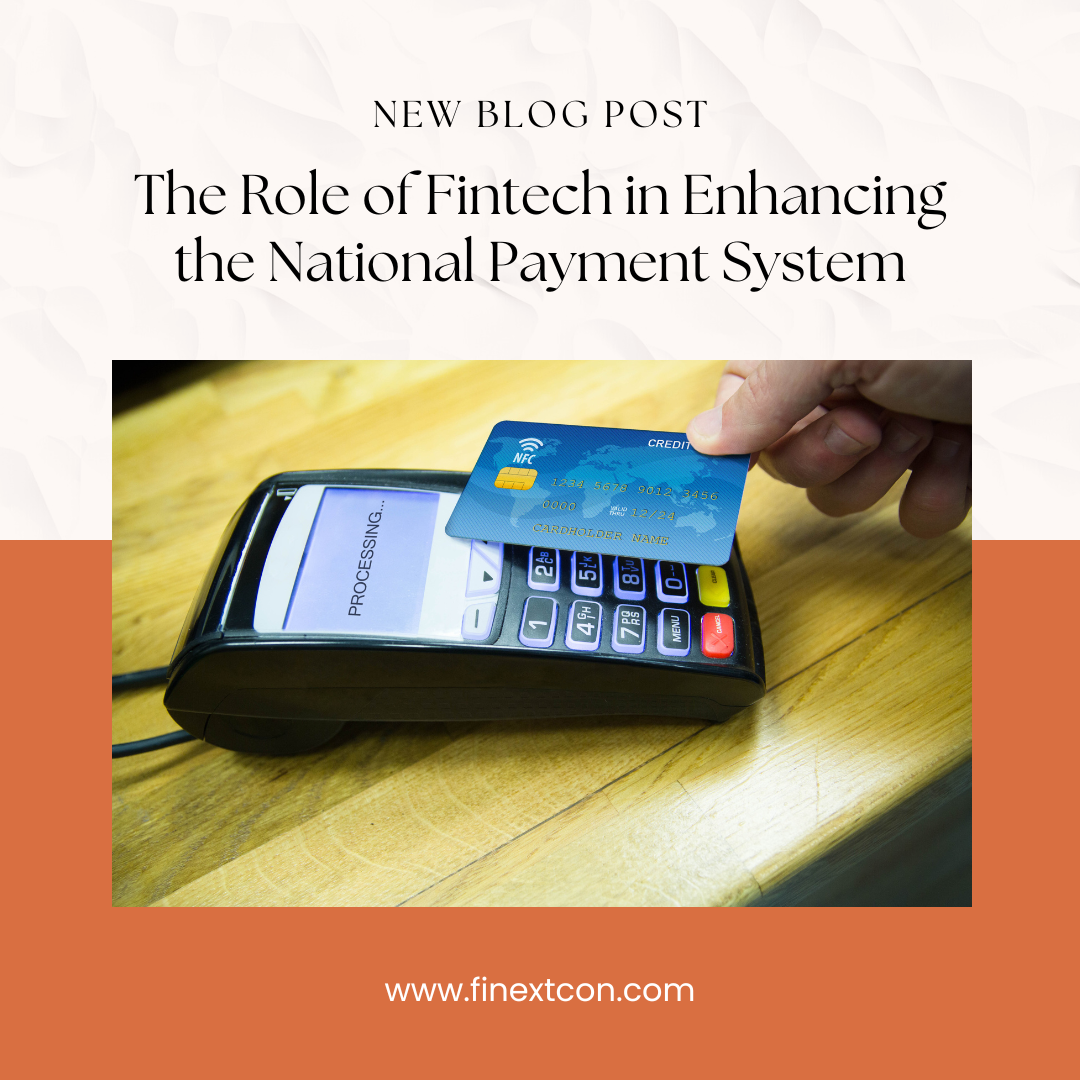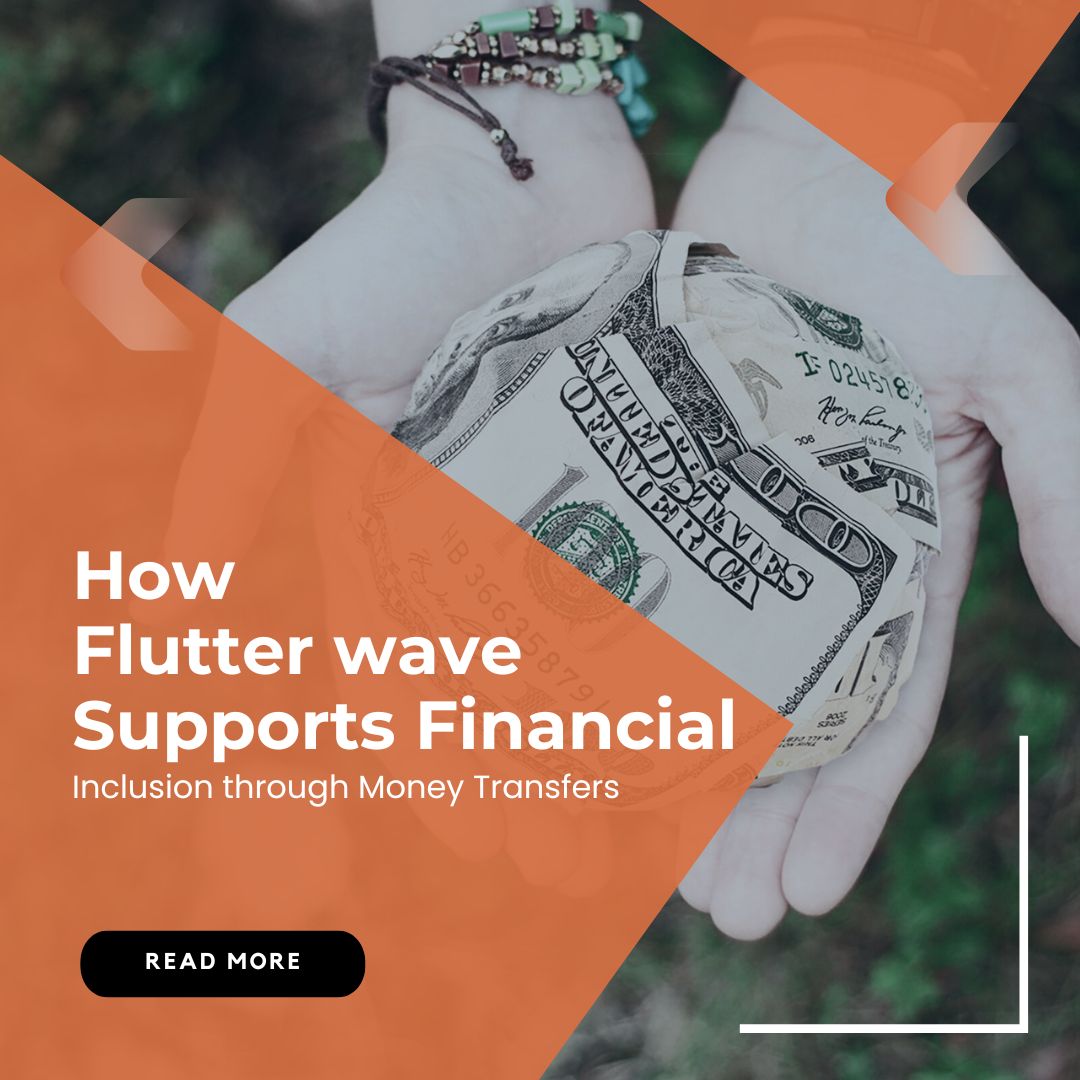Exploring the Top Fintech Companies in the UAE: Driving Innovation and Growth
Tag: Fintech Expo in APAC
Navigating the Crypto Regulatory Landscape: What You Need to Know
Navigating the Crypto Regulatory Landscape: What You Need to Know
The Evolution of Fintech Partnerships: From Competition to Collaboration
The Evolution of Fintech Partnerships: From Competition to Collaboration
The Role of Fintech in Enhancing the National Payment System
In the modern financial landscape, the advent of financial technology (fintech) has profoundly impacted the way we conduct transactions, manage finances, and perceive money. One of the most significant areas where fintech has brought about a revolutionary change is the national payment system. This blog delves into the crucial role fintech plays in enhancing the national payment system, its benefits, challenges, and the future outlook. Understanding the National Payment System The national payment system (NPS) encompasses the set of instruments, procedures, and rules used to transfer funds between entities within a country. It is a crucial component of the financial infrastructure, ensuring the efficient and secure movement of money. A robust NPS is essential for economic stability, facilitating trade, investment, and overall economic growth. The Rise of Fintech Fintech, a fusion of finance and technology, leverages innovations like blockchain, artificial intelligence, and big data to offer enhanced financial services. Its rise has disrupted traditional banking and payment systems, introducing new ways of conducting transactions that are faster, more secure, and more inclusive. Enhancing Efficiency and Speed One of the most notable contributions of fintech to the NPS is the significant improvement in efficiency and speed. Traditional payment methods often involve multiple intermediaries, leading to delays and higher costs. Fintech solutions, such as peer-to-peer (P2P) payment platforms and digital wallets, streamline the process, reducing the time taken for transactions to mere seconds. For instance, real-time payment systems like the Unified Payments Interface (UPI) in India have revolutionized how money is transferred, allowing instant bank-to-bank transfers 24/7. This not only enhances user convenience but also boosts economic activities by ensuring funds are available immediately for further transactions. Promoting Financial Inclusion Fintech has played a pivotal role in promoting financial inclusion, particularly in developing countries. Traditional banking systems often exclude large segments of the population, especially those in rural areas or with low incomes. Fintech bridges this gap by providing accessible and affordable financial services through mobile phones and the internet. Mobile money services like M-Pesa in Kenya have brought millions into the financial system, enabling them to save, borrow, and transfer money without needing a bank account. By integrating more people into the formal financial system, fintech strengthens the NPS and contributes to overall economic growth. Enhancing Security and Transparency Security and transparency are paramount in any payment system. Fintech innovations have significantly bolstered these aspects through technologies like blockchain and biometrics. Blockchain, for example, offers a decentralized ledger system that ensures transparency and reduces the risk of fraud. Biometric authentication methods, such as fingerprint and facial recognition, add an extra layer of security to financial transactions, minimizing the risk of unauthorized access. These advancements not only protect users but also enhance trust in the NPS, encouraging more people to adopt digital payment methods. Challenges and Considerations Despite its numerous benefits, the integration of fintech into the national payment system is not without challenges. Regulatory frameworks need to evolve to keep pace with technological advancements, ensuring that fintech innovations do not compromise… Continue Reading The Role of Fintech in Enhancing the National Payment System
Top 10 Fintech Events in UAE 2025
The United Arab Emirates (UAE) continues to establish itself as a global hub for financial technology (fintech), with Dubai and Abu Dhabi leading the charge. In 2025, the UAE will host a plethora of fintech events that will bring together industry leaders, innovators, investors, and enthusiasts from around the world. Here’s a look at the top 10 fintech events in the UAE that you should mark on your calendar. Fintech Events In the UAE 2025 1.FiNext Awards & Conference Date: Feburary 12-13, 2025 Location: Dubai The FiNext Awards & Conference Dubai 2025 is a premier event designed to bring together the brightest minds and leading innovators in the financial technology (FinTech) industry. Scheduled for February 26-27, 2025, this event will be held in the dynamic and cosmopolitan city of Dubai, known for its rapid advancements in technology and finance. 2.Seamless Middle East Date: April 15-16, 2025 Location: Dubai Seamless Middle East is a comprehensive event that covers fintech, payments, e-commerce, retail, and identity. With over 300 speakers and hundreds of exhibitors, this event offers unparalleled opportunities for learning and networking. 3.GITEX Global Date: October 6-10, 2025 Location: Dubai As one of the largest technology events in the world, GITEX Global features a dedicated fintech section that showcases the latest advancements in financial technology. It’s a must-attend for anyone looking to stay ahead in the tech-driven financial landscape. 4.Abu Dhabi Finance Week Date: November 3-7, 2025 Location: Abu Dhabi Abu Dhabi Finance Week focuses on the future of finance, featuring discussions on fintech, sustainable finance, and investment trends. It attracts a global audience of policymakers, industry leaders, and innovators. 5.Dubai FinTech Summit Date: June 24-25, 2025 Location: Dubai The Dubai FinTech Summit is a premier event that brings together fintech startups, financial institutions, and investors. The summit covers a wide range of topics, including blockchain, digital banking, and regulatory challenges. 6.Middle East Banking Innovation Summit Date: September 8-9, 2025 Location: Dubai This summit is dedicated to exploring the latest innovations in banking technology. With a strong focus on digital transformation, the event provides a platform for banks and fintech companies to collaborate and drive the future of banking. 7.World Blockchain Summit Date: February 18-19, 2025 Location: Dubai The World Blockchain Summit gathers blockchain experts and enthusiasts to discuss the transformative potential of blockchain technology in various industries, including finance. It’s an essential event for those interested in the intersection of blockchain and fintech. 8.MENA Fintech Association Annual Conference Date: May 20, 2025 Location: Abu Dhabi Organized by the MENA Fintech Association, this conference focuses on the regional fintech ecosystem. It offers valuable insights into regulatory developments, market trends, and the challenges faced by fintech companies in the Middle East and North Africa. 9.Future Blockchain Summit Date: October 20-21, 2025 Location: Dubai Part of the broader GITEX Technology Week, the Future Blockchain Summit is dedicated to blockchain technology and its applications in fintech. It’s a great opportunity to explore blockchain innovations and network with industry pioneers. 10.Fintech Abu Dhabi Date: December 1-2, 2025 Location:… Continue Reading Top 10 Fintech Events in UAE 2025
How Flutterwave Supports Financial Inclusion through Money Transfers
In today’s interconnected world, financial inclusion remains a critical issue, especially in developing regions where access to financial services is limited. Flutterwave, a leading payment technology company in Africa, is making significant strides in bridging this gap. By leveraging innovative solutions and a robust platform, Flutterwave is empowering individuals and businesses through seamless money transfers. This blog explores how Flutterwave supports financial inclusion and transforms lives across the continent. Understanding Financial Inclusion Financial inclusion refers to the availability and accessibility of financial services to all individuals, regardless of their socio-economic status. It encompasses a range of services, including banking, payments, savings, credit, and insurance. Financial inclusion is essential for economic development, poverty reduction, and overall societal well-being. Flutterwave’s Role in Promoting Financial Inclusion Flutterwave has emerged as a pivotal player in the financial technology sector, particularly in Africa. Here’s how the company is driving financial inclusion through money transfers: Success Stories The impact of Flutterwave’s efforts is evident in the numerous success stories from individuals and businesses across Africa. For instance, a small business owner in Nigeria can now receive payments from international customers seamlessly, thanks to Flutterwave’s payment gateway. Similarly, a student in Kenya can receive remittances from family abroad quickly and affordably, helping them focus on their studies without financial stress. The Road Ahead While significant progress has been made, the journey towards complete financial inclusion is ongoing. Flutterwave continues to innovate and expand its services to reach more people and address emerging challenges. The company’s commitment to financial inclusion is a testament to its vision of a world where everyone has access to the financial services they need to thrive. Conclusion Flutterwave’s dedication to financial inclusion through money transfers is transforming lives and fostering economic growth across Africa. By providing accessible, affordable, and innovative financial solutions, Flutterwave is empowering individuals and businesses to participate fully in the economy. As the company continues to expand and innovate, the future of financial inclusion in Africa looks promising.
How Third-Party Payment Processors Improve Customer Experience
In today’s digital age, the efficiency and convenience of payment processing play a critical role in shaping the customer experience. As businesses strive to meet the ever-increasing demands of their clientele, integrating third-party payment processors has become a popular and effective solution. These services not only streamline transactions but also enhance the overall customer journey. Here’s how third-party payment processors improve customer experience: 1. Simplified Checkout Process A cumbersome checkout process can lead to cart abandonment and lost sales. Third-party payment processors simplify this process by offering user-friendly interfaces and multiple payment options. Customers can easily and quickly complete their purchases without navigating through complex steps or filling out extensive forms. 2. Enhanced Security Security is a major concern for online shoppers. Third-party payment processors employ advanced encryption technologies and compliance with industry standards (such as PCI DSS) to ensure that customers’ payment information is protected. This builds trust and confidence, encouraging customers to make repeat purchases. 3. Global Reach For businesses looking to expand internationally, third-party payment processors can facilitate transactions in multiple currencies and support various payment methods popular in different regions. This global reach allows customers to pay in their preferred currency and method, enhancing their shopping experience and expanding the business’s market potential. 4. Seamless Mobile Payments With the rise of mobile commerce, offering a seamless mobile payment experience is essential. Third-party payment processors often provide optimized mobile payment solutions that integrate easily with mobile apps and websites. This ensures that customers can shop and pay conveniently from their mobile devices, leading to higher satisfaction and loyalty. 5. Faster Transactions Speed is crucial in the digital age. Third-party payment processors facilitate faster transaction processing, reducing the waiting time for customers. Instant payment confirmations and quicker order processing enhance the overall efficiency of the shopping experience, keeping customers satisfied and engaged. 6. Comprehensive Reporting and Analytics Third-party payment processors offer businesses detailed reporting and analytics tools. These insights help businesses understand customer behavior, preferences, and trends. By analyzing this data, businesses can make informed decisions to improve their services, tailor marketing strategies, and ultimately provide a better customer experience. 7. Customer Support and Dispute Resolution Handling payment-related issues can be challenging for businesses. Third-party payment processors often provide robust customer support and dispute resolution services. This means that customers have access to timely assistance for any payment-related concerns, enhancing their overall satisfaction and trust in the business. 8. Recurring Payments and Subscriptions For businesses that operate on a subscription model, third-party payment processors offer efficient recurring payment solutions. Customers can easily set up and manage their subscriptions without the hassle of manual renewals. This convenience fosters a positive experience and encourages long-term customer relationships. Conclusion Incorporating third-party payment processors into your business operations can significantly enhance the customer experience. From simplifying the checkout process and ensuring security to enabling global reach and providing comprehensive support, these services offer numerous benefits that cater to the needs and expectations of modern consumers. By prioritizing efficient and secure payment solutions,… Continue Reading How Third-Party Payment Processors Improve Customer Experience






